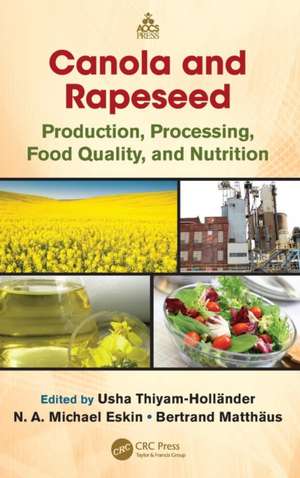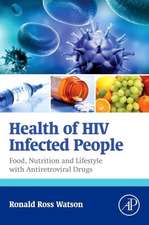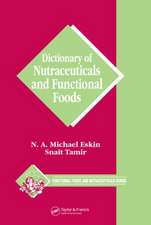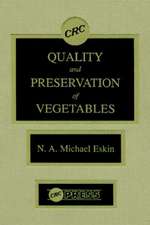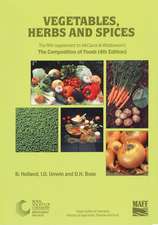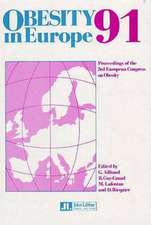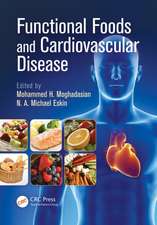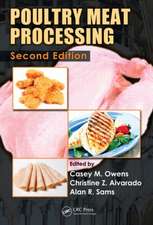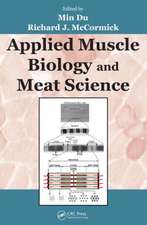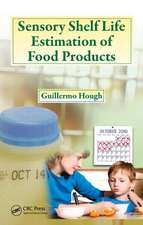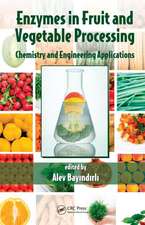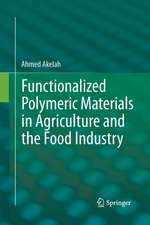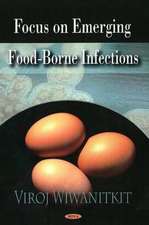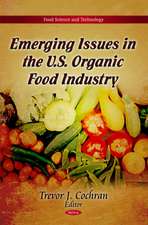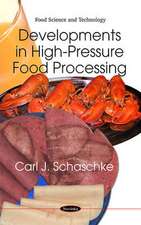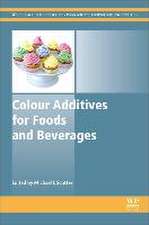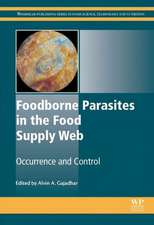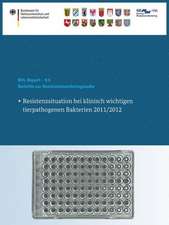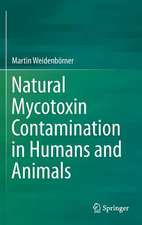Canola and Rapeseed: Production, Processing, Food Quality, and Nutrition
Editat de Usha Thiyam-Holländer, N. A. Michael Eskin, Bertrand Matthäusen Limba Engleză Hardback – 21 noi 2012
Topics include:
- The historical development, properties, and performance of canola
- Characteristics and bioactives of sinapic acid derivatives and the decarboxylation pathways leading to their formation
- Canola protein processing
- High omega-9 canola oils and their future applications
- Modification of Brassica oilseeds
- Rapid analytical methods for measuring oil content
- The potential of ultrasound and supercritical fluid extraction for producing value-added by-products
- The processing of virgin rapeseed oils in Europe
- Extraction and application of canola protein
- The frying stability of high-oleic low-linolenic acid canola oils
- The potential of mustard oil for biodiesel
| Toate formatele și edițiile | Preț | Express |
|---|---|---|
| Paperback (1) | 556.99 lei 43-57 zile | |
| CRC Press – 16 noi 2016 | 556.99 lei 43-57 zile | |
| Hardback (1) | 1334.13 lei 43-57 zile | |
| CRC Press – 21 noi 2012 | 1334.13 lei 43-57 zile |
Preț: 1334.13 lei
Preț vechi: 1626.99 lei
-18% Nou
Puncte Express: 2001
Preț estimativ în valută:
255.28€ • 267.25$ • 211.23£
255.28€ • 267.25$ • 211.23£
Carte tipărită la comandă
Livrare economică 07-21 aprilie
Preluare comenzi: 021 569.72.76
Specificații
ISBN-13: 9781466513860
ISBN-10: 1466513861
Pagini: 374
Ilustrații: 131 b/w images and 51 tables
Dimensiuni: 156 x 234 x 25 mm
Greutate: 0.66 kg
Ediția:New.
Editura: CRC Press
Colecția CRC Press
ISBN-10: 1466513861
Pagini: 374
Ilustrații: 131 b/w images and 51 tables
Dimensiuni: 156 x 234 x 25 mm
Greutate: 0.66 kg
Ediția:New.
Editura: CRC Press
Colecția CRC Press
Public țintă
Academic and Professional ReferenceCuprins
Canola Research: Historical and Recent Aspects. An Update on Characterization and Bioactivities of Sinapic Acid Derivatives. Valuable Vinylphenols from Rapeseed and Canola: Decarboxylative Pathways. Processing of Canola Proteins: A Review. The Future of Omega- Oils. Modification of Seed Oil Formation in. Oilseed Species. Measurement of Oil Content by Rapid Analytical Techniques. The Potential for Ultrasound and Supercritical Fluid Extraction for Value-Added Processing of Canola. Processing of Virgin Canola Oils. Rapeseed Proteins: Recent Results on Extraction and Application. Frying Stability of High-Oleic, Low-Linolenic Canola Oils. Biodiesel from Mustard Oil. Canola Oil and Heart Health: A Historical Perspective. Canola Oil: Evolving Research in Obesity and Insulin Resistance. Rapeseed and Canola Phenolics: Antioxidant Attributes and Efficacy. Nutritional Impact of Fatty Acid Composition of Canola Oil and Its Effect on the Oxidative Deterioration. Effect of Canolol on Oxidation of Edible Oils. Canola Oil, Canolol and Cancer: Evolving Research. Canolol as a Promising Nutraceutical: Status and Scope. Index.
Notă biografică
Usha Thiyam-Holländer is an assistant professor at the Department of Human Nutritional Sciences, based at the Richardson Centre for Functional Foods and Nutraceuticals, University of Manitoba, Canada, where she researches the impact of various novel aspects of processing on canola oil and minor components. Her work also focuses on plant-based functional foods and nutraceutical ingredients and the impact of innovative technology, isolation, and optimization. Her interests include biorefining and environmentally friendly processes for deriving functional ingredients.
Michael N.A. Eskin is professor and associate dean in the Department of Human Nutritional Sciences, Faculty of Human Ecology, University of Manitoba, Canada. He has done extensive research on edible oils and was involved in the early development of canola oil. He has garnered of a number of awards, including the AOCS Timothy Mount Award for excellence in the science and technology of edible oils and the Canadian Institute of Food Science and Technology W.J. Eva Award for outstanding contribution to Canadian Science and Technology. Dr. Eskin was the 2012 winner of the prestigious IFT Stephen S. Chang Award for significant contributions to lipid science, particularly as related to his work on canola oil.
Bertrand Matthäus runs a laboratory at the Max Rubner-Institut (MRI), Federal Research Institute for Nutrition and Food, in the Department of Lipid Research of the German Federal Ministry of Nutrition, Agriculture and Consumer Protection. He conducts research dealing with the improvement of the quality of fats and oils, especially canola oil. His work focuses on the investigation of frying processes; contaminants such as 3-MCPD esters, acrylamide, phthalates and 4-hydroxy-2-trans-nonenal; and the investigation of the oxidation of edible fats and oils.
Michael N.A. Eskin is professor and associate dean in the Department of Human Nutritional Sciences, Faculty of Human Ecology, University of Manitoba, Canada. He has done extensive research on edible oils and was involved in the early development of canola oil. He has garnered of a number of awards, including the AOCS Timothy Mount Award for excellence in the science and technology of edible oils and the Canadian Institute of Food Science and Technology W.J. Eva Award for outstanding contribution to Canadian Science and Technology. Dr. Eskin was the 2012 winner of the prestigious IFT Stephen S. Chang Award for significant contributions to lipid science, particularly as related to his work on canola oil.
Bertrand Matthäus runs a laboratory at the Max Rubner-Institut (MRI), Federal Research Institute for Nutrition and Food, in the Department of Lipid Research of the German Federal Ministry of Nutrition, Agriculture and Consumer Protection. He conducts research dealing with the improvement of the quality of fats and oils, especially canola oil. His work focuses on the investigation of frying processes; contaminants such as 3-MCPD esters, acrylamide, phthalates and 4-hydroxy-2-trans-nonenal; and the investigation of the oxidation of edible fats and oils.
Descriere
In 2010, esteemed researchers gathered at a workshop held at the Richardson Centre for Functional Foods and Nutraceuticals at the University of Manitoba. Drawn from these proceedings, this volume presents state-of-the-art information on the chemistry of the minor constituents of canola and rapeseed and their impact on human health. Providing comprehensive coverage of the potential of this essential crop, this book identifies new areas of research and opportunities for the industrial application of functional foods and nutraceuticals from canola and rapeseed.
